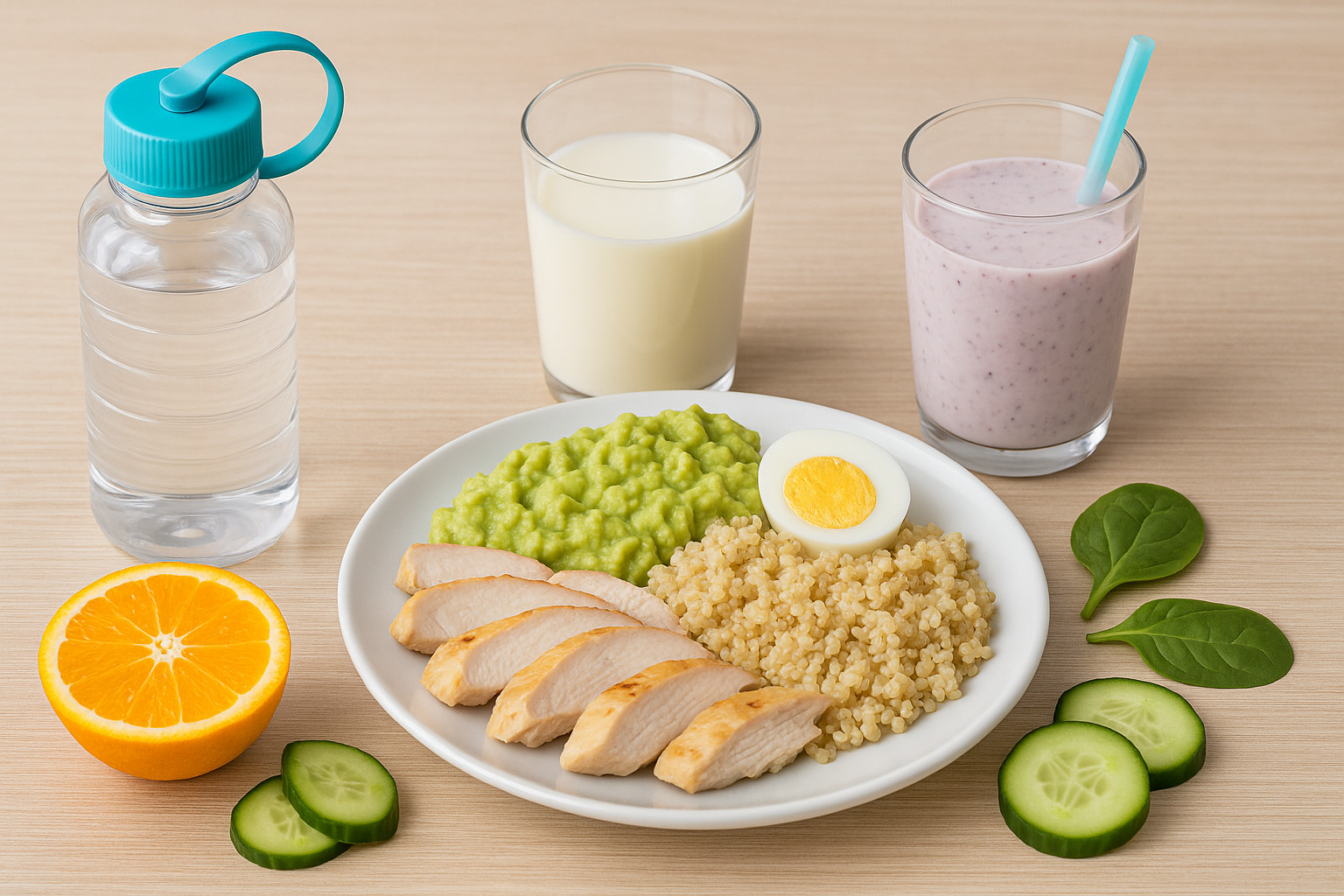Breastfeeding drains your body’s fluids and nutrients faster than you think. You’re producing milk around the clock. If you’re not hydrating or eating properly, fatigue, low supply, and brain fog can sneak in fast. The goal: keep your body fueled so you can keep feeding.
Why Hydration Matters More While Breastfeeding
Your body needs extra fluids to make breast milk. That’s not an option—it’s biology. Without enough water, milk supply can drop, and your energy crashes. Dehydration may cause:
- Headaches
- Dizziness
- Constipation
- Fatigue
- Less frequent urination
And the worst part? Thirst isn’t always an early warning sign.
Signs You’re Not Drinking Enough
Your body whispers before it screams. Watch for these signals:
- Dry lips or mouth
- Dark yellow urine
- Feeling sluggish or cranky
- Trouble concentrating
- Less milk output than usual
If you notice two or more, it’s time to refill your cup.
Best Drinks for Breastfeeding Moms
Skip the sugar bombs and go with drinks that help your body work better.
1. Water (Plain or Infused)
Always the safest choice. Try cucumber, lemon, or mint if you want flavor without sugar.
2. Coconut Water
Natural electrolytes help replenish minerals lost during feedings.
3. Herbal Teas
Fenugreek, fennel, and raspberry leaf support milk production and digestion. Choose caffeine-free options.
4. Milk and Fortified Plant Milks
Calcium and vitamin D count too. Almond and oat milk are great if you’re dairy-sensitive.
5. Homemade Smoothies
Blend banana, spinach, oats, and Greek yogurt with water or milk. It hydrates and feeds.
What to Avoid
– Caffeinated energy drinks: They mess with sleep and may make your baby irritable.
– Sugary juices and soda: Temporary energy followed by a crash.
– Alcohol: Limits milk production and needs hours to clear from your system.
How Much Water Do You Need?
Every body is different, but here’s a basic rule:
Drink a glass of water every time you nurse.
Add 2–3 more throughout the day.
Aim for about 12–13 cups of total fluids daily (from drinks and foods combined). Don’t count every ounce—just be consistent.
Tips to Stay Hydrated Without Forcing It
- Keep a water bottle next to your nursing spot
- Use a straw for faster sipping
- Set reminders on your phone or watch
- Eat more water-rich foods like cucumbers, melons, soups, and oranges
- Make hydration part of your routine: before bed, after waking up, before nursing
Pair Fluids with the Right Foods
Hydration alone doesn’t fuel milk. You need calories, fats, and minerals. Include:
- Healthy fats: Avocados, nuts, seeds, olive oil
- Protein: Eggs, legumes, chicken, tofu
- Complex carbs: Oats, brown rice, sweet potatoes
- Dark greens: Kale, spinach, broccoli
Meal prep in batches so you’re not stuck eating crackers with one hand at 3 a.m.
Don’t Forget Electrolytes
Electrolytes help balance fluids in your body. If you’re sweating, sick, or just plain exhausted, try:
- A pinch of sea salt in lemon water
- Coconut water or bone broth
- A low-sugar electrolyte powder
Realistic Hydration Schedule for a Breastfeeding Day
| Time | What to Drink |
|---|---|
| Upon waking | Warm water with lemon or herbal tea |
| After nursing | A full glass of water (250–300 ml) |
| Mid-morning | Coconut water or a fruit smoothie |
| Lunch | Water with cucumber or citrus slices |
| Afternoon | Herbal tea + water-rich snack (like melon) |
| Evening | Fortified plant milk or another glass of water |
Final Thoughts
Your body is doing double duty. Breastfeeding takes work, and hydration is fuel. Drink smart, eat well, and give yourself room to recover. Consistency wins over perfection. Keep a bottle near, sip often, and listen to your body before it begs.





